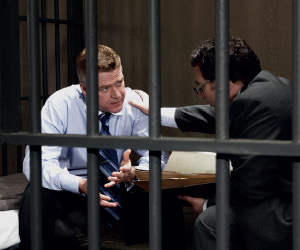Even if you’re married to your attacker. By Helen Wallace
 When people make the big decision to commit to another human being, they usually put a great deal of trust in that person and have faith that they will be their fiercest protectors and close confidants for the rest of their lives. So, what happens when things suddenly take an unexpected violent turn, and what can be done in a time of crisis? If you thought that marital rape was an uncommon phenomenon, think again. This is one dark secret that needs to be talked about.
When people make the big decision to commit to another human being, they usually put a great deal of trust in that person and have faith that they will be their fiercest protectors and close confidants for the rest of their lives. So, what happens when things suddenly take an unexpected violent turn, and what can be done in a time of crisis? If you thought that marital rape was an uncommon phenomenon, think again. This is one dark secret that needs to be talked about.
When trust goes bust
We all know what rape is, though many people believe that it isn’t something that can really happen within the union of marriage. Isn’t it just fulfilling your duties as a wife or husband? And why would somebody resist the advances of the person they loved and desired enough to commit to for life?
Rape, by definition, is a crime, in most cases committed by a man, of forcing another individual to engage in sexual intercourse with the offender against their will – and this definition does not rule out our partners or spouses. Being married to someone doesn’t give them free rein to have sex with you whenever their heart desires, and engaging in it by force is a violation of someone’s bodily integrity and is considered a serious crime in SA – 18.8% of women reported being subjected to it in 2012, and there are presumably many more who didn’t come forward and speak out. ‘Marital rape happens far more than we know or is reported,’ says Reinette Evans, director of Rape Crisis Helderberg in the Western Cape. ‘It is also very difficult for women who report it to prove that it was rape, especially if there were no injuries. It’s typically just your word against his, which can be very discouraging.’
This type of rape is also much more subtle. Spouses coerce their partner, often using guilt and making them feel as if they’re neglecting
a ‘marital duty.’ This leaves
the victim confused and humiliated and, because it is out of context, is hard for some to recognise as rape. When asked why people commit these misdeeds, Reinette explains that it’s because they feel it is within their rights to do so. ‘Many men think that when they marry someone, their partners belong to them, basically becoming their property, and that they can therefore make demands and take what they want from their spouse. They don’t realise that, when it comes to marriage, we are partners and not ever belongings.’
The ugly truth
You’d think that this far into the 21st century, forcing intercourse on anyone, whether they are your partner or not, would be a universal taboo. The sad truth is that non-consensual marital sex is still legal in 38 countries, mainly here in Africa, the Middle East and Asia, and is considered socially acceptable by large portions of the world’s people despite various legislations. The only way that change will ever occur is if marriage and human rights laws are revised and if people continue the fight for equality both in everyday
life as well as behind closed doors.
Speak up
What can be done about this serious issue affecting so many South Africans? Are people going to have to succumb to the desires of their partners to the exclusion of their own? All women, as well as men, need to understand that
if your significant other is demanding sex, it is considered rape, regardless of your relationship or marriage licence, and there are organisations that are trained and willing to help and give counsel. At Rape Crisis Helderberg, Reinette explains that they not only advise victims on medical procedures, but also teach them life skills and help prepare them for court, in the hope that their perpetrators will serve time behind bars for their transgressions.
Physical intimacy is a mutual activity which is meant to be enjoyed by both people, and anyone, at any time, has the right to refuse it. Perhaps, if we all engage in open dialogue about sexuality and consent, humanity can one day close this chapter and marital bliss can be enjoyed by all.







